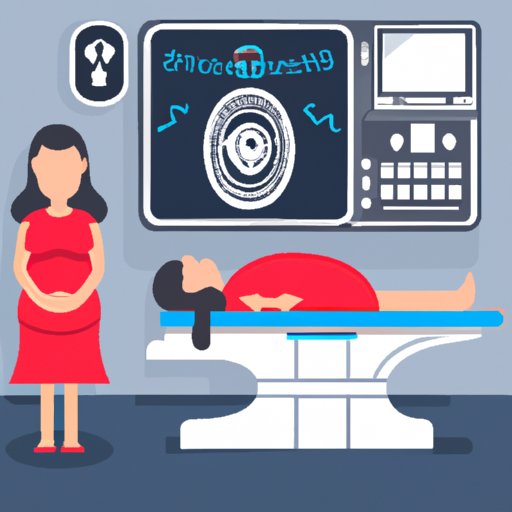
Can You Get an MRI While Pregnant?
During pregnancy, women may require medical imaging to diagnose potential health concerns. Magnetic resonance imaging (MRI) is a common imaging technique that uses a magnetic field and radio waves to produce images of the body’s organs and tissues. However, pregnant women may be unsure whether it is safe to get an MRI while pregnant. In this article, we will explore the safety concerns and risks associated with getting an MRI while pregnant, the benefits of MRI scans during pregnancy, debunking myths and misconceptions, alternative imaging options, and real-life case studies to provide insights and experiences from patients, medical professionals, and experts.
Safety Concerns and Risks
When considering MRI scans during pregnancy, it is essential to understand the potential risks involved. According to the American College of Radiology, there are no known biological risks associated with MRIs. However, the effects of the magnetic field and radio waves on a developing fetus are not entirely understood, and therefore, MRI scans are typically avoided during the first trimester when the fetus is most vulnerable. Additionally, the use of contrast agents during MRI scans is not recommended during pregnancy as their effects on the fetus may be harmful.
Before getting an MRI scan, pregnant women must inform their healthcare provider about their pregnancy to ensure necessary safety precautions are taken. These may include using earplugs to protect the fetus’s developing ears from the loud noises the MRI scanner can produce, lying on their left side to prevent compressing the inferior vena cava, and avoiding contrast agents.
Benefits of MRI Scans During Pregnancy
MRI scans are not routinely recommended during pregnancy. However, there may be situations where an MRI is necessary to diagnose potential health concerns for both the mother and fetus. For example, MRIs can be used to evaluate fetal growth and development, diagnose placental abnormalities, diagnose potential tumors, or assess structural abnormalities in the mother’s organs.
Additionally, MRI scans do not expose the mother or fetus to ionizing radiation, which can be harmful. MRIs are considered non-invasive and do not require any radiation, making them a safer option than other imaging methods for pregnant women.
Debunking Myths and Misconceptions
There are many myths and misconceptions surrounding MRI scans during pregnancy. One common myth is that MRIs cause birth defects. However, there is no scientific evidence to support this claim. Another misconception is that MRIs can cause miscarriage, premature labor, or harm the fetus. Again, there is no scientific evidence to support this claim.
It is essential to consult with your healthcare provider to understand the benefits and risks of getting an MRI while pregnant and ask any questions or concerns you may have. Your healthcare provider can provide you with accurate information and help you make an informed decision about your imaging options.
Alternative Imaging Options for Pregnant Women
While MRIs are safe during pregnancy, there are other imaging options that pregnant women can consider. Ultrasounds are the most common imaging technique used during pregnancy and are typically the first line of imaging for pregnant women. Ultrasounds offer a safe and non-invasive way to evaluate the developing fetus without exposing the mother or baby to radiation.
CT scans are another imaging option, but they expose the mother and fetus to ionizing radiation, making them a less desirable option for pregnant women. However, in certain medical emergencies, a CT scan may be necessary to diagnose and treat a potential health concern.
Case Studies
Real-life case studies can provide insights into the experiences of patients, medical professionals, and other experts. While MRIs are not routinely recommended during pregnancy, there have been cases where an MRI has been necessary to diagnose a potential health concern for a mother or fetus.
One such case involved a pregnant woman who required an MRI to evaluate potential damage to her spinal cord caused by a car accident. The MRI scan allowed healthcare providers to make an accurate diagnosis and provide appropriate treatment, ultimately leading to a successful pregnancy and delivery.
Conclusion
When considering an MRI during pregnancy, it is essential to understand the potential risks involved and to consult with your healthcare provider. While MRIs are not routinely recommended during pregnancy, they can be necessary to diagnose potential health concerns for the mother and fetus. Ultrasounds are typically the preferred imaging method during pregnancy, but in certain situations, an MRI may be necessary. By working with your healthcare provider, you can make an informed decision about your imaging options and ensure the health of yourself and your developing fetus.




